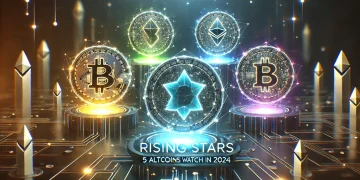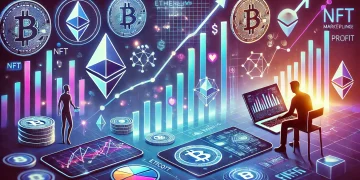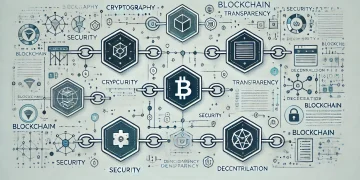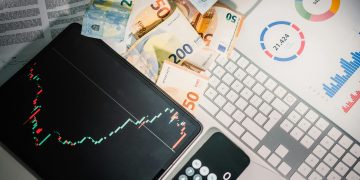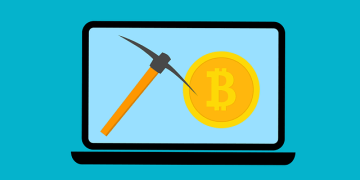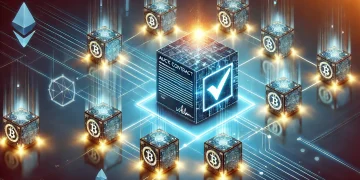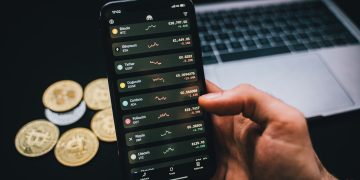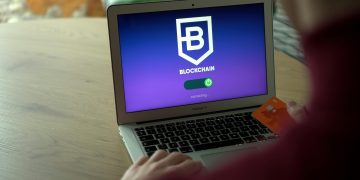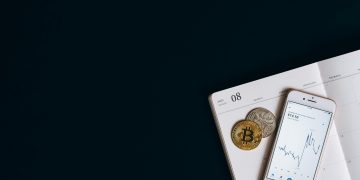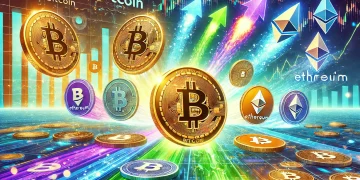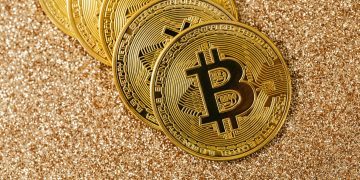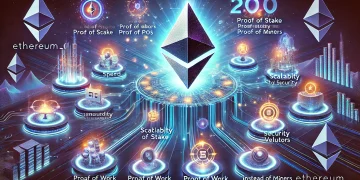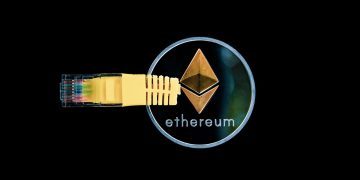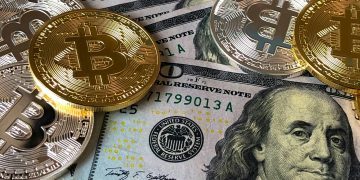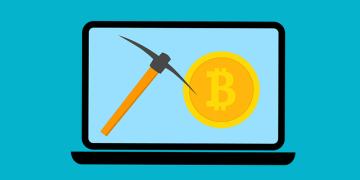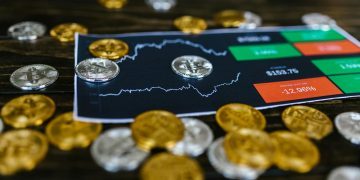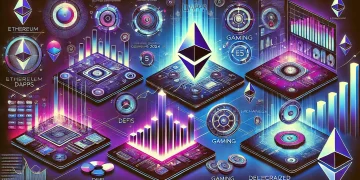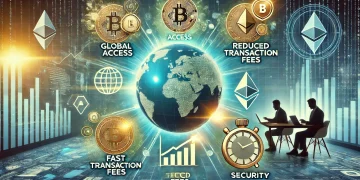As blockchain technology continues to evolve, decentralized finance (DeFi) and decentralized autonomous organizations (DAOs) have emerged as groundbreaking innovations that bring governance to the community level. Central to these advances are governance altcoins – cryptocurrencies specifically designed to facilitate decision-making within decentralized networks and empower users by giving them a voice in the platform’s future.
In this article, we’ll explore how governance altcoins work, their role within DAOs, and the impact they’re having on the future of decentralized governance.
Understanding Governance Altcoins
Governance altcoins are specialized cryptocurrencies that grant holders the ability to influence decisions within a blockchain-based project. Unlike traditional cryptocurrencies, which may solely serve as a medium of exchange or a store of value, governance tokens are designed to empower their holders with voting rights over key aspects of the project’s protocol, treasury management, and strategic direction.
Governance tokens can be found in a wide array of decentralized networks, including DeFi platforms, DAOs, and other blockchain-based applications. Notable examples of governance altcoins include MakerDAO’s MKR, Compound’s COMP, and Uniswap’s UNI. These tokens are fundamental to DAOs, allowing users to vote on proposals, allocate funds, and shape the project’s roadmap.
The Role of DAOs in the Blockchain Ecosystem
A decentralized autonomous organization (DAO) is a digital, community-driven organization that operates on the blockchain, using smart contracts to manage its operations and decision-making processes. In a DAO, there is no centralized authority; instead, governance is decentralized and decisions are made collectively by token holders. DAOs are unique because they enable a group of people to work towards shared goals without the need for a traditional, hierarchical structure.
Key components of DAOs include:
- Transparency: All decisions and transactions within a DAO are recorded on the blockchain, allowing for transparent governance.
- Smart Contracts: DAOs use self-executing contracts to enforce rules and automate processes, ensuring that decisions are implemented without the need for intermediaries.
- Community Governance: Token holders can vote on proposals, such as funding allocations, feature updates, and partnerships, giving them direct influence over the DAO’s direction.
DAOs cover a range of use cases, from DeFi protocols and media organizations to charitable initiatives and investment funds. Governance tokens serve as the voting mechanism within DAOs, enabling decentralized control and aligning the organization’s direction with its community’s interests.
How Governance Altcoins Work Within DAOs
Governance altcoins serve as the backbone of DAO decision-making, acting as voting power for members. Here’s how they work within a DAO framework:
- Proposal Submission: DAO members submit proposals for changes or updates to the organization. This could include changes to the protocol, funding for projects, or modifications to the DAO’s roadmap.
- Voting Rights: Governance token holders have the right to vote on these proposals, with each token typically representing a single vote. In some cases, proposals may have a threshold or minimum quorum that must be met for a vote to be valid.
- Weighted Voting: Often, voting power is directly proportional to the number of governance tokens held. The more tokens an individual holds, the more influence they have over decisions.
- Implementation: Once a proposal is approved, it’s implemented via smart contracts on the blockchain, ensuring that the decision is executed in a decentralized and transparent manner.
Through this structure, governance altcoins give users a stake in the success and direction of a DAO, aligning incentives between the organization and its community.
Prominent Governance Altcoins in the DAO Space
Several governance altcoins have become instrumental in shaping the future of DAOs, each with unique attributes and governance models. Here’s a closer look at some of the leading governance tokens and how they contribute to DAO development.
1. MakerDAO (MKR)
Launch Date: 2017
Objective: Facilitate governance for the Maker protocol, which issues the stablecoin DAI.
MakerDAO was one of the earliest examples of a DAO in action, and MKR token holders play a critical role in its governance. MakerDAO’s primary function is to oversee the issuance of DAI, a decentralized stablecoin pegged to the US dollar. MKR holders are responsible for making decisions that maintain DAI’s stability, including adjusting interest rates, managing collateral types, and implementing protocol upgrades.
Key Features of MKR
- Collateral and Risk Management: MKR holders vote on which types of assets can be used as collateral for generating DAI, ensuring that risks are managed effectively.
- Decentralized Stability Mechanism: MKR holders vote on the parameters that stabilize DAI, making it one of the most complex governance mechanisms in the DAO ecosystem.
- Burning Mechanism: MKR is burned (permanently removed from circulation) as fees are paid in the Maker system, creating a deflationary effect that aligns the token’s value with successful governance.
2. Uniswap (UNI)
Launch Date: 2020
Objective: Decentralized governance of the Uniswap protocol, the largest decentralized exchange (DEX).
UNI token holders govern Uniswap, a leading decentralized exchange that allows users to trade cryptocurrencies directly from their wallets. UNI holders have the power to vote on important changes to the protocol, including fee structures, liquidity pool rewards, and governance fund allocations.
Key Features of UNI
- Community-Driven Development: UNI holders vote on proposals related to the platform’s features, fee distribution, and liquidity incentives, giving the community a direct role in the exchange’s evolution.
- Delegation of Voting Power: UNI tokens can be delegated to others, allowing users to participate in governance even if they’re unable to vote directly.
- Financial Incentives: A significant portion of UNI tokens was distributed to past users of Uniswap, incentivizing loyalty and active governance participation among its user base.
3. Compound (COMP)
Launch Date: 2020
Objective: Govern the Compound protocol, a decentralized lending and borrowing platform.
Compound is a popular DeFi lending platform, allowing users to lend and borrow assets without intermediaries. COMP, the platform’s governance token, enables holders to participate in protocol governance by proposing and voting on changes.
Key Features of COMP
- Control Over Protocol Parameters: COMP holders can vote on critical parameters, such as interest rate models, supported assets, and collateralization ratios.
- Incentive-Driven Voting: The Compound protocol encourages user participation by distributing COMP tokens to borrowers and lenders, effectively giving users a stake in its governance.
- Decentralized Treasury: COMP holders control Compound’s treasury, allowing them to fund new initiatives or development proposals that benefit the platform.
The Impact of Governance Altcoins on the Future of DAOs
Governance altcoins have profound implications for the future of DAOs and decentralized governance models. As more organizations move toward decentralization, these tokens are likely to shape how DAOs evolve and interact with their communities. Here are a few key ways governance tokens are impacting DAOs and the broader blockchain ecosystem.
1. Empowering Communities
Governance tokens give communities direct control over the projects they support. This empowerment leads to more robust ecosystems, as users and stakeholders have a tangible impact on the protocol’s direction. By distributing decision-making power to the community, governance tokens help ensure that decisions align with the users’ interests, fostering greater transparency, accountability, and user loyalty.
2. Enhancing Decentralization
Governance tokens decentralize control, allowing DAOs to operate independently of a centralized authority. This structure aligns with the principles of blockchain, where trust is distributed across a network rather than concentrated in a single entity. Governance altcoins ensure that even large organizations can be governed in a decentralized manner, with no single individual or group wielding excessive control.
3. Driving Innovation
Governance tokens promote a dynamic environment where users can propose and vote on protocol changes, leading to continuous improvements. This decentralized model of development encourages innovation by leveraging the collective intelligence of the community. Governance tokens make it possible for DAOs to adapt and evolve quickly in response to changing needs and technological advancements.
4. Building Sustainable Economic Models
Governance altcoins create sustainable economic models by incentivizing participation and rewarding community engagement. For instance, users are often rewarded with governance tokens for providing liquidity or participating in the network, aligning their financial interests with the success of the DAO. This model encourages long-term commitment from community members, as they have a vested interest in the project’s growth and stability.
5. Introducing New Governance Structures
Governance tokens allow DAOs to experiment with new governance structures. DAOs have the flexibility to adopt voting models that best suit their community’s needs, such as quadratic voting (which limits the voting power of large holders), staking-based voting, or delegated voting. This adaptability enables DAOs to refine governance processes and ensure that decision-making reflects the will of the community.
Challenges Facing Governance Altcoins and DAOs
While governance altcoins have enabled DAOs to flourish, they also face significant challenges:
- Centralization of Voting Power: Despite the decentralized intent, governance altcoins often lead to centralization, as individuals or institutions with substantial holdings can have a disproportionate influence over decisions.
- Voter Apathy: Many governance token holders do not actively participate in voting, leading to a situation where a small group of active participants makes most decisions. Solutions such as delegation and incentivized voting are being explored to address this issue.
- Security Risks: Decentralized governance can be vulnerable to attacks or manipulation. Malicious actors may attempt to acquire governance tokens to influence decisions for personal gain. DAOs must implement safeguards to protect against such attacks.
- Coordination and Communication: DAOs, especially large ones, face challenges in coordinating and communicating with a globally dispersed community. Without effective coordination, decision-making processes can become inefficient, slowing down development and project growth.
The Future of Governance Altcoins and DAOs
As DAOs gain traction across industries, governance altcoins are likely to play an increasingly vital role in shaping the future of decentralized organizations. From financial services and media to gaming and social networks, governance tokens enable community-driven innovation and transparency, allowing stakeholders to co-create the future of projects they are passionate about. DAOs and governance altcoins have the potential to redefine the structure of organizations, replacing traditional hierarchies with collaborative, community-driven governance.
Governance altcoins represent an exciting development in the world of cryptocurrency, offering the power to transform how we interact with organizations and influence decisions. By bridging the gap between community interests and protocol development, these tokens are paving the way for a future where decentralized governance is not just a feature but the foundation of digital ecosystems.
